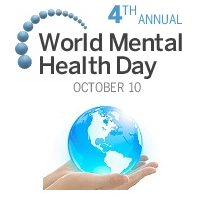 Let’s pretend that you and I are out to dinner with a big group of mom-friends, maybe 20 or so people. We sit around and talk about how hard it is to be a parent, and we toss out our woes and soothe each other’s worries. We share about repetitive struggles with one of our children, and hope that someone in the group will have a good idea on how to tackle that same old problem one it rears it’s ugly head again tomorrow. We talk about the ups and downs of motherhood and, if we are lucky, we end the night feeling a little less overwhelmed and a little more energized.
Let’s pretend that you and I are out to dinner with a big group of mom-friends, maybe 20 or so people. We sit around and talk about how hard it is to be a parent, and we toss out our woes and soothe each other’s worries. We share about repetitive struggles with one of our children, and hope that someone in the group will have a good idea on how to tackle that same old problem one it rears it’s ugly head again tomorrow. We talk about the ups and downs of motherhood and, if we are lucky, we end the night feeling a little less overwhelmed and a little more energized.
If you have a really good group of mom-friends (which I highly suggest trying to cultivate if you don’t have it already), you’ll listen to each other and (try not to) judge. Sometimes that’s easy to do, sometimes it’s not. But it’s important to do your best to just listen, to let other parents know that they aren’t alone, to make sure that every one feels free to say the things we are scared to utter aloud. For some, that’s admitting that you popped your child’s leg in a moment of anger. You might not be a spanker, but it just happened and you’ve been feeling guilty about it for weeks. Or maybe you’re really struggling with your child having anger issues. You’ve tried all the tricks in your bag and nothing’s working. You’re frustrated and embarrassed and tired of not seeing results. Moms talk about these things with each other. We help each other (or at least we should) and we care about each other.
But at this point, we start to see something different. We are afraid to drift off the topic of parenthood and move on to ourselves. We are hesitant to share any of our personal struggles because that doesn’t fit the pinterest-perfect profile of ourselves that we’re trying to create. I know that at times I’ve found myself thinking, “There is a difference in sharing about your parental woes vs. sharing about your deep dark secrets.” And it’s true. We aren’t too afraid to speak up about slips and falls in parenting because we know that everyone has those moments. But we convince ourselves that we are the only ones aching on the inside. We convince ourselves that everyone else is living that pinterest-perfect life. But we’re not. None of us are. And we need each other’s help in our personal struggles as much as we do our parental struggles. I’m not suggesting that you open up your closets for a skeleton search, but there are lots of things we choose not to share when sometimes it might be good and even helpful to talk about. Did you know that out of our (hypothetical) group of friends at dinner, at least 5 of us probably struggle with depression. Even more of us struggled with postpartum depression. There are probably at least 2 or 3 who deal with the effects of OCD, anxiety, or panic disorders (or maybe all of them together). There’s also probably at least one person in our group who deals with mood disorders or bipolar disorder or have, at some point, considered suicide. These aren’t just numbers, they are our reality…but we are afraid to speak up about them. We are afraid to say, “I have a mental illness” because we think it will make us look weak. Or maybe we just joke about it. We talk about taking our “happy pills” or needing “mommy juice” to help life be a little more manageable. It’s hard to believe that we can be so flippant about something so serious.
But this is serious, and it can have dire consequences if not treated properly. So here’s what I want to tell you: If you are struggling, you aren’t alone. I’m aware that it sounds cliché but help is available. And sometimes we don’t even know what kind of resources are available until we crowd-source. Until we talk about these things, we never know that our friends may be dealing with the same or similar issues behind closed doors. If we support each other in parenting, shouldn’t we do the same in both mental and physical health? However, as much as we’d like to hope that we can talk it out with a friend and be over and done with it, that’s not the way things generally work. Mental illness isn’t something you can just “get over.” You can’t “pull yourself up by your bootstraps” or pray out of it or just trudge through until it’s gone. Mental illness is just like any other illnesses; if you ignore them, they will probably get worse. And taking medicines to help with your mental illness isn’t weak, it’s brave. And talking about it? Is not only incredibly brave, but also helpful to those who think “why me?”
If you have a mental illness or think you may, please talk to someone. Find help, or just find out where to find help. Often it takes baby steps to get to where you need to be. Start by writing down the number for a therapist, and just put it in your purse or you pocket or your desk drawer. And one day, when you’re feeling particularly low or maybe you’re feeling particularly brave, call and make that first appointment. And know that you aren’t alone and there are a lot of us cheering for you.
For more resources on mental illness and where to find help, go to MentalHealth.gov. If you need help immediately, click here to see a list of emergency resources. If you are trying to find a mental health facility, click here. You can also call your local primary care provider and ask if they can suggest a local mental health professional.




Andrea Smith
October 18, 2014 at 9:49 amI love this! I feel awareness is the key to helping! Thank you for sharing!
Denise Taylor-Dennis
October 10, 2014 at 8:06 amGreat article I know that this subject is just not talked about as much as it should be.